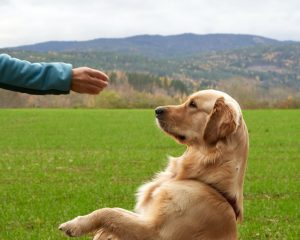Rabbits use their ears, coupled with various body languages, gestures or vocal cues to communicate various things including anger, alertness, displeasure, disapproval, and so on. For instance, you may notice this as your bunny growls, lunges and so on.
Contents
Ears backward
To correctly interpret this body language, you need to consider if your bunny is relaxed or agitated and angry. Their mood will help you correctly decode the various signal that this pet might be sending to you.

For instance, if angry, he is trying to tell you ‘back-off’ or ‘I do not like what you are doing’, among others. He or she wants to leave him or her alone. For instance, while this pet is lunging or about to attack, you may notice ears in a backward position and its tail up.
On the other hand, if this happens while this animal is relaxed, it could mean he or she is relaxed or resting and he or she will be in the meatloaf position. Being relaxed often indicate that your bunny feels secure with its environment since these prey animals are ever alert.
Ears Lying straight backward
If it happens after exercise, it may indicate your bunny is tired and he or she is trying to relax. In this case, the ears will not be completely down. He is only taking a break and will probably continue exercising.
Rabbit shaking ears and scratching them
If you notice this behavior. You need to begin by examining the ears to see if all is well. In most cases, this behavior is a sign of infestation by parasites such as ear mites or anything else that is irritating.
This can be accompanied by head shaking among other symptoms. Ensure your furry friend is treated in case of infestation.
Sitting on hind legs with ears and nose upward
This may be a means of trying to be alert. This might indicate the bunny does not totally trust his or her environment.
Also, it can be a sign that your rabbit is trying to beg something. It could be the treat or food you are holding in your hand or a toy.
One ear forward, one ear on the back
This gesture means that your bunny can hear you but not interested or paying much attention to what you are saying. He or she is trying to say, “something is going on, but it doesn’t yet merit my full attention.” [1]
Your furry friend is trying to ignore you, and this is a sign that he feels secure. Otherwise, he or she could be paying much attention.
Shakes ears and hops
Your bunny is happy and excited. He may be inviting you to go play with him or maybe excited if you are about to feed him. This might be accompanied by other happy sounds such as humming, clucking or purring or happy body languages including binkying, flopping or doing a bunny 500, among others.
Signs of anger or displeasure
The following positions mainly indicate that this critter is about to be angry, angry already or displease but can also indicate other things.
- Ears up with the inside part turned back – Your pet is angry or about to get angry. You need to be careful since if you do not read this body language well, you might be nipped or bitten.
- The inner side of ears turned outwards – He is about to get angered. This could be triggered by something you did. You need to stop doing whatever it is.
- Ears falling to the sides – It is a sign of anger or displeasure. However, it could be a sign that this animal is relaxed. Consider other body languages or sounds that might accompany it. Flopping to the side might also mean your rabbit is relaxed.
Being alert to his or her environment
Being prey animals, these pets are always alert in their environment. They may also be curious, especially if they smell, see or hear something suspicious.
- Lying down with ears upright – They are semi-alert. Relaxed but listening in case of anything. This will be noted during sun basking. It shows trust to some extent.
- Twitching or erect – He or she is keen and listening attentively, and it means that your pet is aware of what is going on around him or her.
- Forwards or TV antenna position - Trying to pay attention and the message here could be such as ‘what are you saying’ or ‘something has caught my attention’. Sometimes, this may happen when this pet wants to be investigative.
Conclusion
As you have noted, some ear position might mean different things. Therefore, we emphasize that you consider the context under which it happens.
Although these pets might have slightly varying body languages, if you consider the circumstance, you are likely to correctly interpret the meaning.





Leave a Reply
You must be logged in to post a comment.